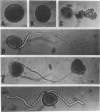Abstract
In vitro pollen germination was examined as a method to determine the mutagenic and physiological effects of environmental pollutants on higher organisms. Results were presented indicating that mutations could be distinguished by their in vitro germination characteristics if sporophytes homozygous for the mutated allele were tested. The addition of agents directly into the in vitro medium was shown to be an effective method to assess their physiological effects. The exposure of pollen grains during the in vitro germination process to ultraviolet radiation in the B range (280-320 nm) was found to produce little or no change in the germination or ruptured percentage but a sharp decrease in pollen tube growth after 1 hr. In vitro pollen germination appears to be a valuable method to examine the mutation types and physiological effects produced by a broad range of environmental pollutants. In fact, since in vitro germination is related to reproduction and gene transmission, the biological activity of these agents on in vitro germination should be tested routinely to determine their possible effects on food production and gene frequency changes in future generations.
Full text
PDF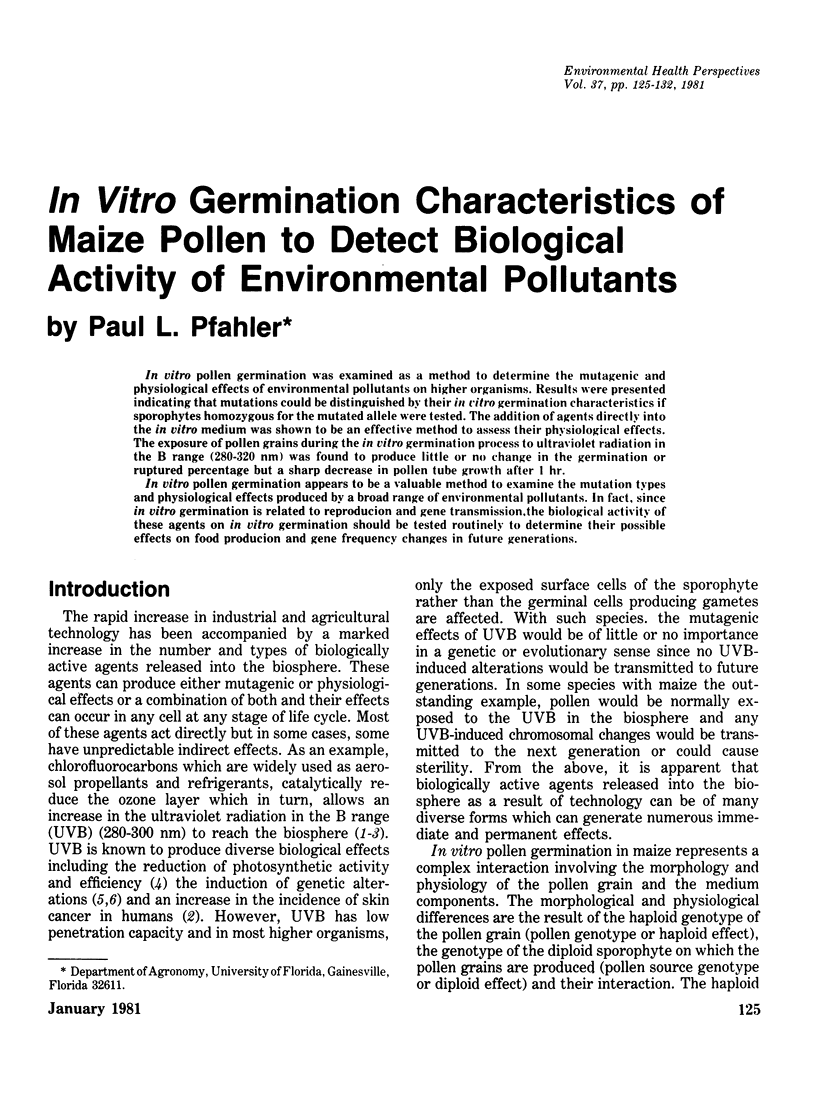
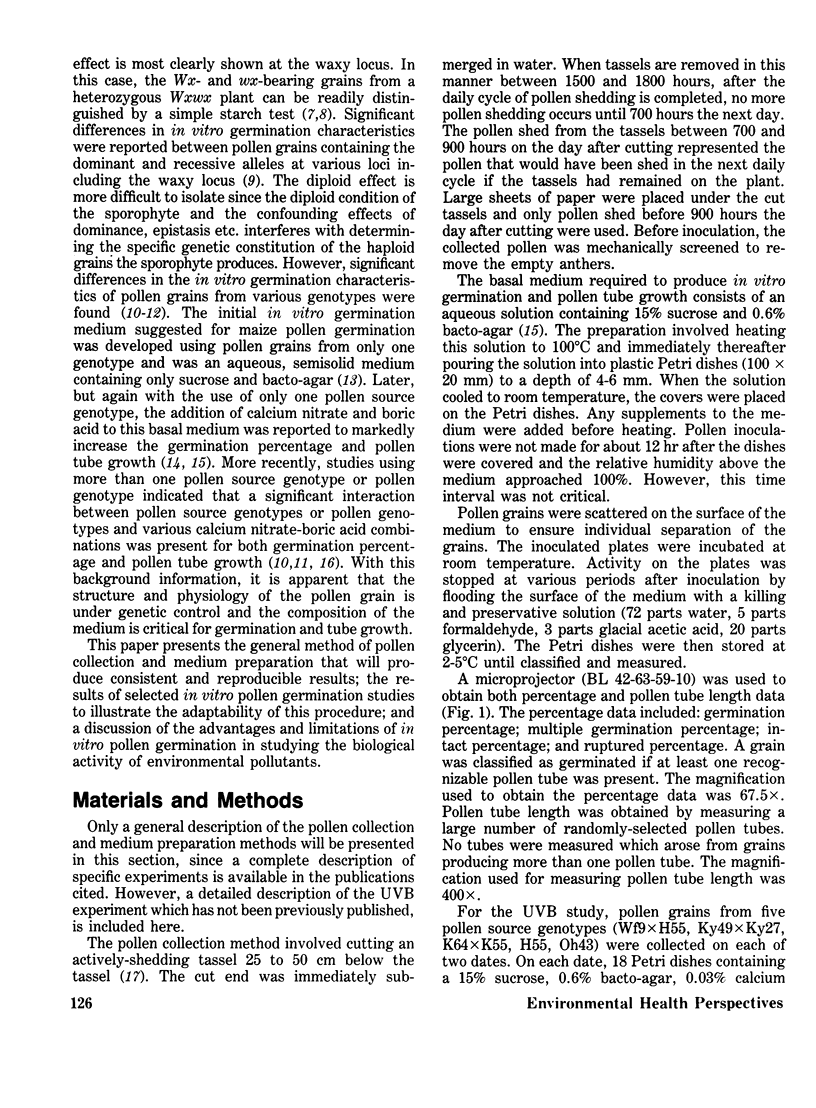
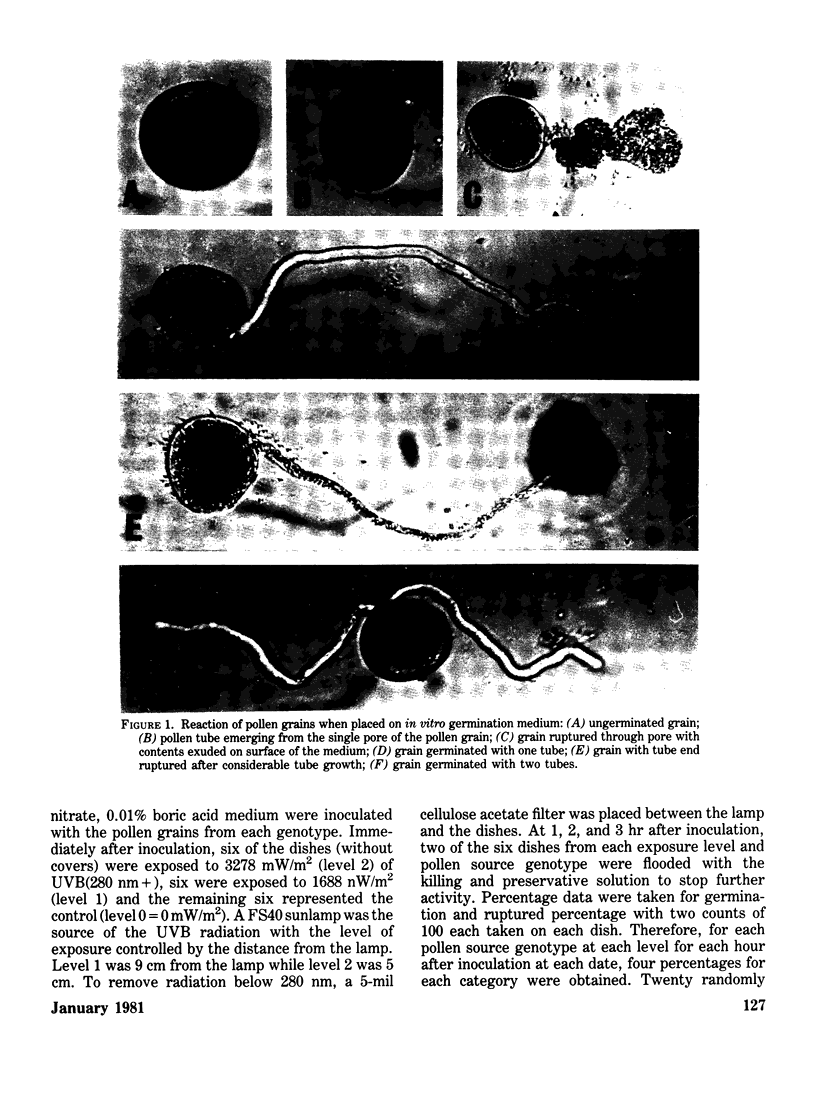
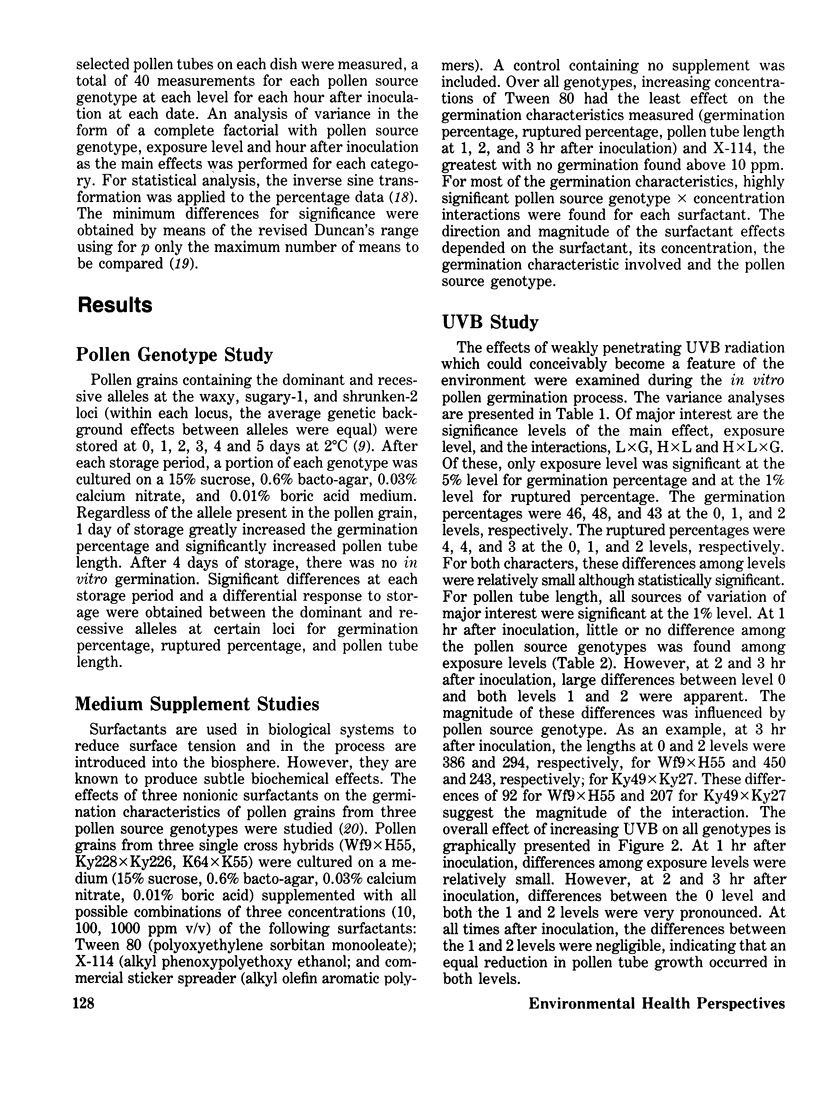
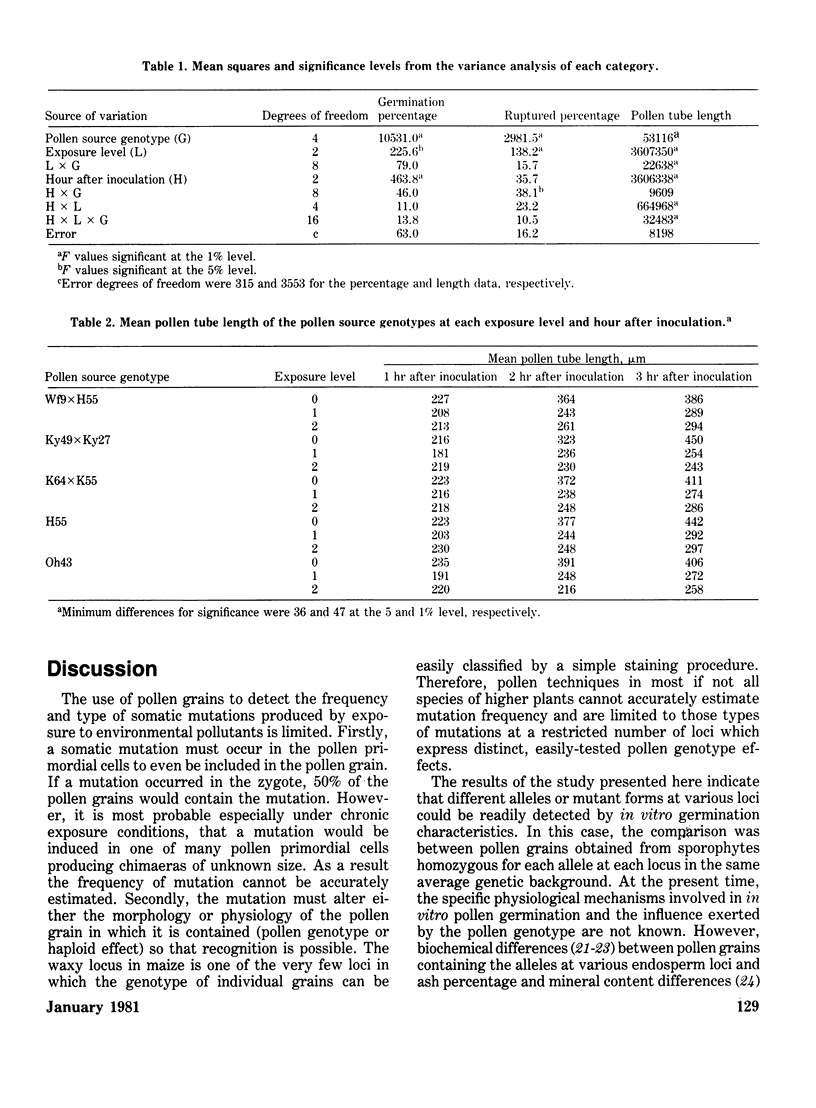
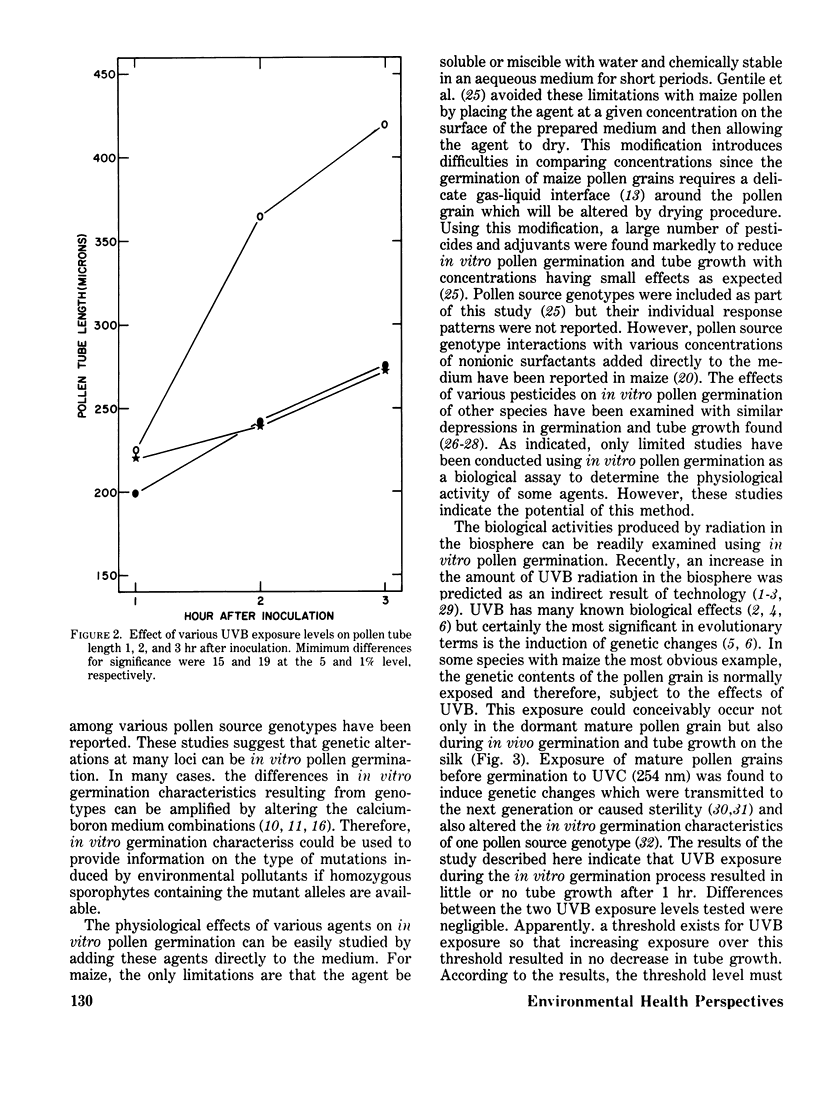
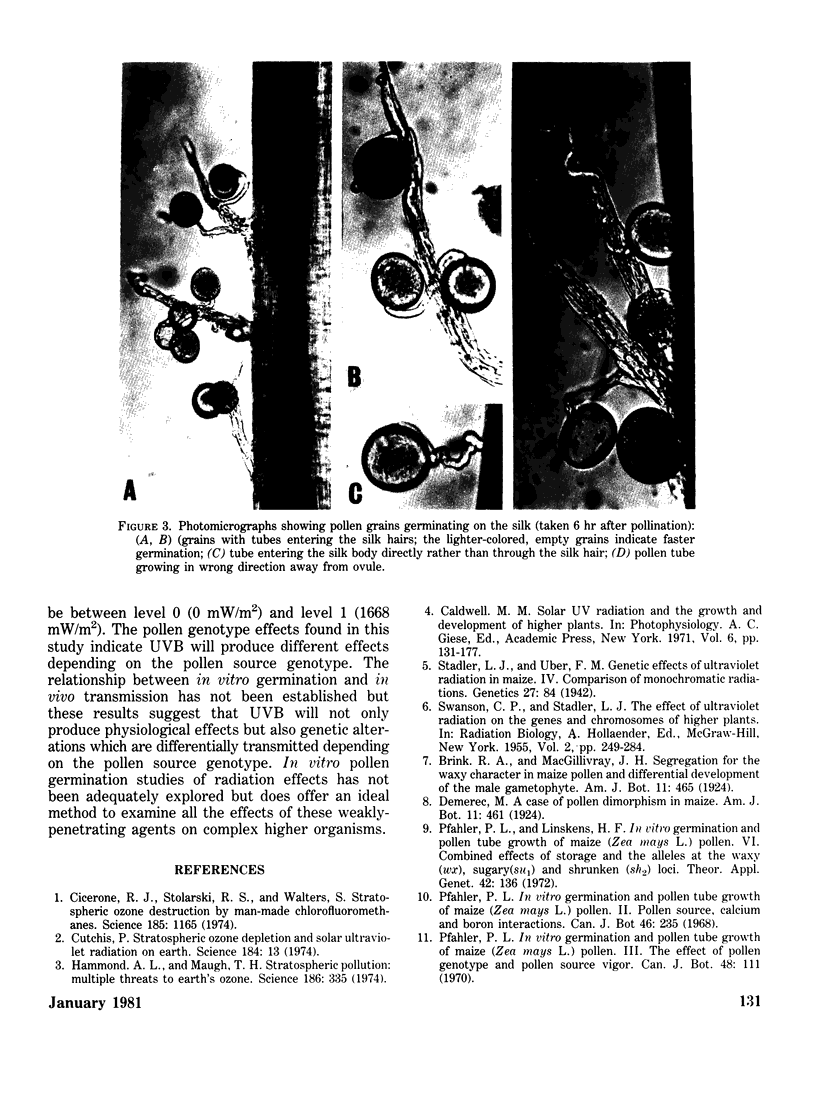
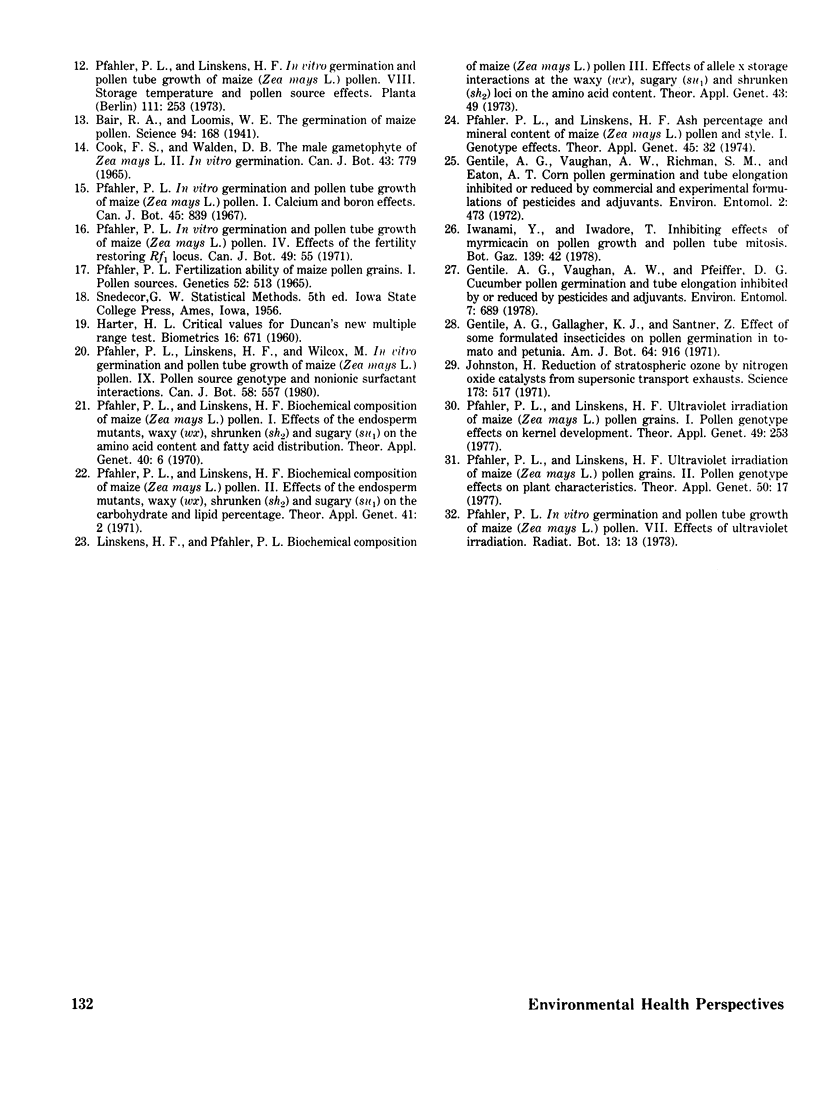
Images in this article
Selected References
These references are in PubMed. This may not be the complete list of references from this article.
- Bair R. A., Loomis W. E. THE GERMINATION OF MAIZE POLLEN. Science. 1941 Aug 15;94(2433):168–169. doi: 10.1126/science.94.2433.168-a. [DOI] [PubMed] [Google Scholar]
- Cicerone R. J., Stolarski R. S., Walters S. Stratospheric ozone destruction by man-made chlorofluoromethanes. Science. 1974 Sep 27;185(4157):1165–1167. doi: 10.1126/science.185.4157.1165. [DOI] [PubMed] [Google Scholar]
- Cutchis P. Stratospheric ozone depletion and solar ultraviolet radiation on Earth. Science. 1974 Apr 5;184(4132):13–19. doi: 10.1126/science.184.4132.13. [DOI] [PubMed] [Google Scholar]
- Hammond A. L., Maugh T. H., 2nd Stratospheric Pollution: Multiple Threats to Earth's Ozone. Science. 1974 Oct 25;186(4161):335–338. doi: 10.1126/science.186.4161.335. [DOI] [PubMed] [Google Scholar]
- Johnston H. Reduction of stratospheric ozone by nitrogen oxide catalysts from supersonic transport exhaust. Science. 1971 Aug 6;173(3996):517–522. doi: 10.1126/science.173.3996.517. [DOI] [PubMed] [Google Scholar]
- Pfahler P. L. Fertilization ability of maize pollen grains. I. Pollen sources. Genetics. 1965 Sep;52(3):513–520. doi: 10.1093/genetics/52.3.513. [DOI] [PMC free article] [PubMed] [Google Scholar]
- Stadler L J, Uber F M. Genetic Effects of Ultraviolet Radiation in Maize. IV. Comparison of Monochromatic Radiations. Genetics. 1942 Jan;27(1):84–118. doi: 10.1093/genetics/27.1.84. [DOI] [PMC free article] [PubMed] [Google Scholar]



